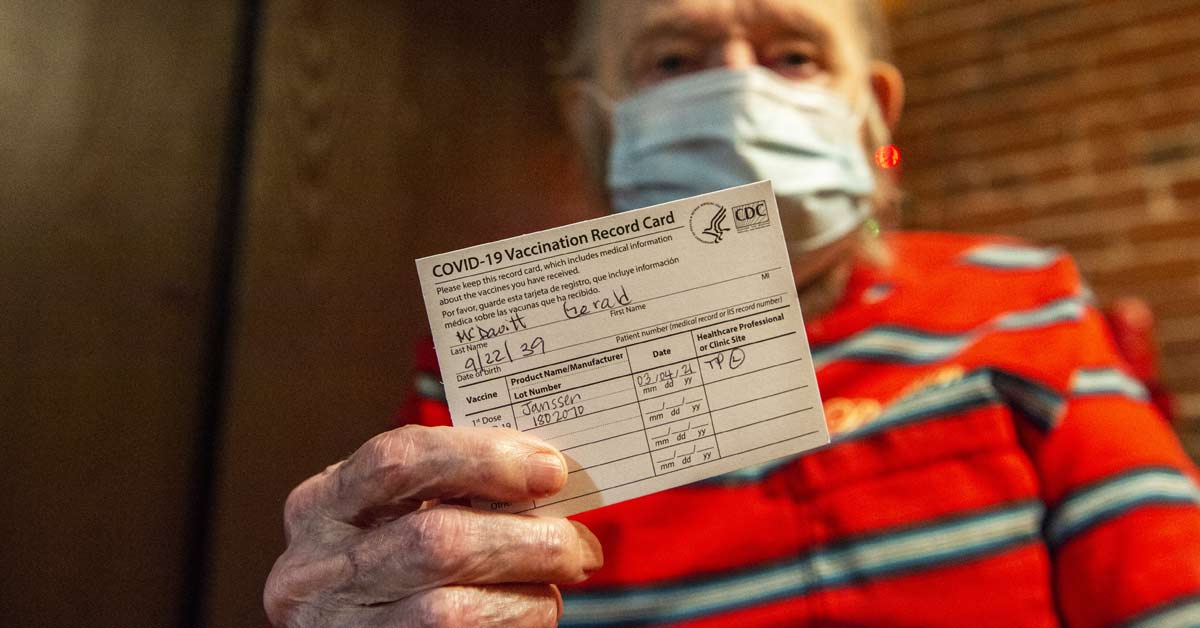On Etsy, eBay, Facebook and Twitter, little rectangular slips of paper started showing up for sale in late January. Printed on card stock, sellers listed them for US$20 to US$60 each, with a discount on bundles of three or more. Laminated ones cost extra.
All were forgeries or falsified copies of the Centers for Disease Control and Prevention (CDC) vaccination cards, which are given to people who have been inoculated against COVID-19 in the United States (US).
“We found hundreds of online stores selling the cards, potentially thousands were sold,” said Saoud Khalifah, the founder of Fakespot, which offers tools to detect fake listings and reviews online.
The coronavirus has made opportunists out of many people, like those who hoarded bottles of hand sanitizer at the start of the pandemic or those who cheated recipients out of their stimulus checks. Now online scammers have latched on to the latest profit-making initiative: the little white cards that provide proof of shots.
Online stores offering counterfeit or stolen vaccine cards have mushroomed in recent weeks, Khalifah said. The efforts are far from hidden, with Facebook pages named “vax-cards” and eBay listings with “blank vaccine cards” openly hawking the items.
Selling fake vaccination cards could break federal laws that forbid copying the CDC logo, legal experts said. If the cards were stolen and filled out with false numbers and dates, they could also violate identity theft laws, they added.
But profiteers have pressed ahead as demand for the cards has grown from anti-vaccine activists and other groups. Airlines and other companies have recently said they may require proof of COVID-19 immunisation so that people can safely travel or attend events.
The cards may also become central to “vaccine passports,” which offer digital proof of vaccinations. Some tech companies developing vaccine passports ask people to upload copies of their CDC cards.
Last week, 45 state attorneys general banded together to call on Twitter, Shopify and eBay to stop the sale of false and stolen vaccine cards. The officials said they were monitoring the activity and were concerned that unvaccinated people would misuse the cards to attend large events, potentially spreading the virus and prolonging the pandemic.
“We’re seeing a huge market for these false cards online,” said Josh Shapiro, Pennsylvania’s attorney general, whose office has investigated fraud related to the virus. “This is a dangerous practice that undermines public health.”
The CDC said it was “aware of cases of fraud regarding counterfeit COVID-19 vaccine cards.” It asked people not to share images of their personal information or vaccine cards on social media.
Facebook, Twitter, eBay, Shopify and Etsy said that the sale of fake vaccine cards violated their rules and that they were removing posts that advertised the items.
The CDC. introduced the vaccination cards in December, describing them as the “simplest” way to keep track of COVID-19 shots. By January, sales of false vaccine cards started picking up. Many people found the cards were easy to forge from samples available online. Authentic cards were also stolen by pharmacists from their workplaces and put up for sale.
Many people who bought the cards were opposed to the COVID-19 vaccines, Khalifah said. In some anti-vaccine groups on Facebook, people have publicly boasted about getting the cards.
Other buyers want to use the cards to trick pharmacists into giving them a vaccine, he said. Because some of the vaccines are two-shot regimens, people can enter a false date for a first inoculation on the card, which makes it appear as if they need a second dose soon. Some pharmacies and state vaccination sites have given priority to people due for their second shots.
One Etsy seller, who declined to be identified, said she had sold dozens of fake vaccine cards for US$20 each recently. She justified her actions by saying she was helping people evade a “tyrannical government.” She added that she did not plan to get inoculated.
This article was first featured on 8 April, 2021 in The New York Times.
Related Articles:
